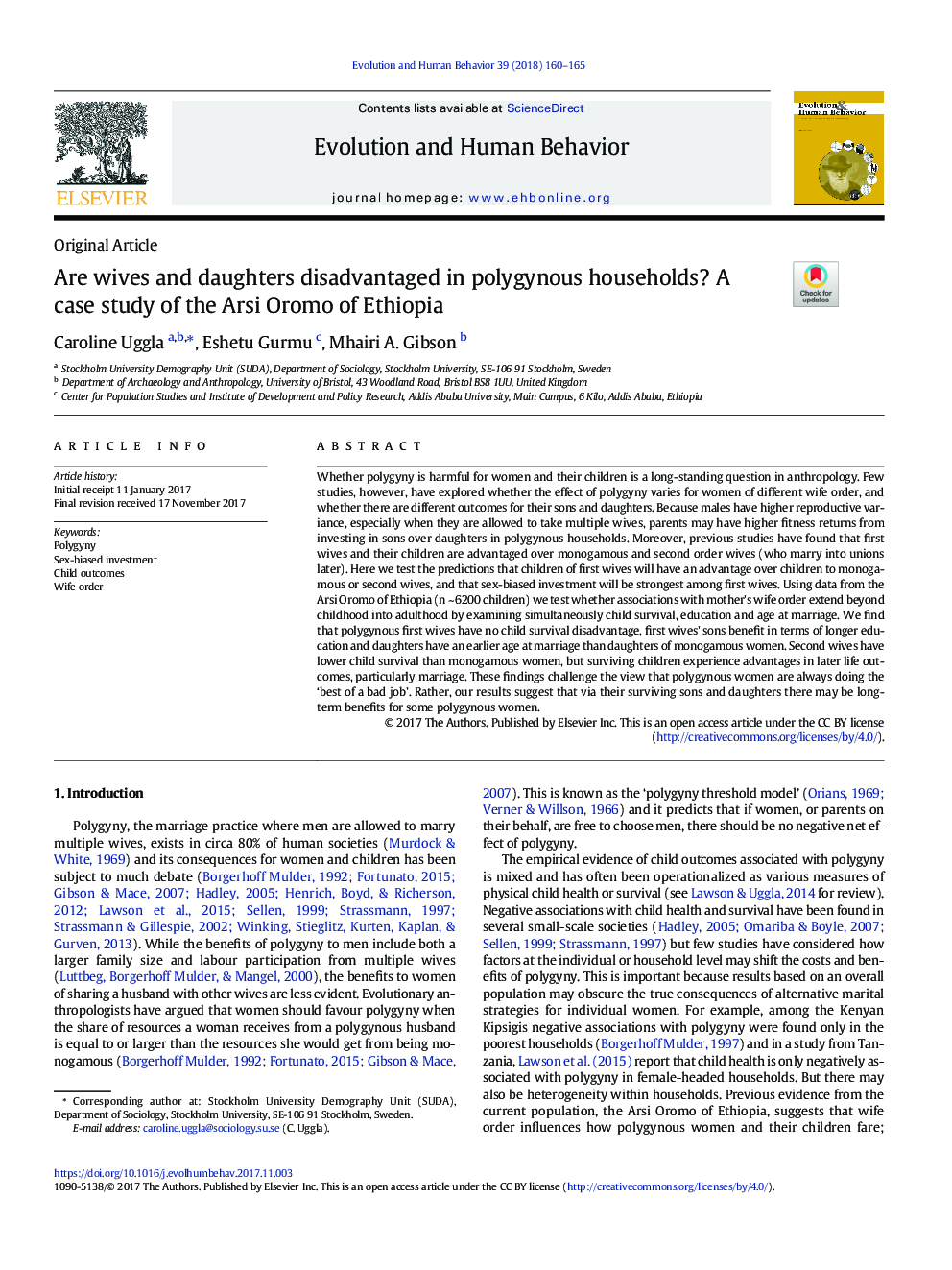| کد مقاله | کد نشریه | سال انتشار | مقاله انگلیسی | نسخه تمام متن |
|---|---|---|---|---|
| 7316263 | 1475508 | 2018 | 6 صفحه PDF | دانلود رایگان |
عنوان انگلیسی مقاله ISI
Are wives and daughters disadvantaged in polygynous households? A case study of the Arsi Oromo of Ethiopia
دانلود مقاله + سفارش ترجمه
دانلود مقاله ISI انگلیسی
رایگان برای ایرانیان
کلمات کلیدی
موضوعات مرتبط
علوم زیستی و بیوفناوری
علوم کشاورزی و بیولوژیک
بوم شناسی، تکامل، رفتار و سامانه شناسی
پیش نمایش صفحه اول مقاله

چکیده انگلیسی
Whether polygyny is harmful for women and their children is a long-standing question in anthropology. Few studies, however, have explored whether the effect of polygyny varies for women of different wife order, and whether there are different outcomes for their sons and daughters. Because males have higher reproductive variance, especially when they are allowed to take multiple wives, parents may have higher fitness returns from investing in sons over daughters in polygynous households. Moreover, previous studies have found that first wives and their children are advantaged over monogamous and second order wives (who marry into unions later). Here we test the predictions that children of first wives will have an advantage over children to monogamous or second wives, and that sex-biased investment will be strongest among first wives. Using data from the Arsi Oromo of Ethiopia (n ~Â 6200 children) we test whether associations with mother's wife order extend beyond childhood into adulthood by examining simultaneously child survival, education and age at marriage. We find that polygynous first wives have no child survival disadvantage, first wives' sons benefit in terms of longer education and daughters have an earlier age at marriage than daughters of monogamous women. Second wives have lower child survival than monogamous women, but surviving children experience advantages in later life outcomes, particularly marriage. These findings challenge the view that polygynous women are always doing the 'best of a bad job'. Rather, our results suggest that via their surviving sons and daughters there may be long-term benefits for some polygynous women.
ناشر
Database: Elsevier - ScienceDirect (ساینس دایرکت)
Journal: Evolution and Human Behavior - Volume 39, Issue 2, March 2018, Pages 160-165
Journal: Evolution and Human Behavior - Volume 39, Issue 2, March 2018, Pages 160-165
نویسندگان
Caroline Uggla, Eshetu Gurmu, Mhairi A. Gibson,